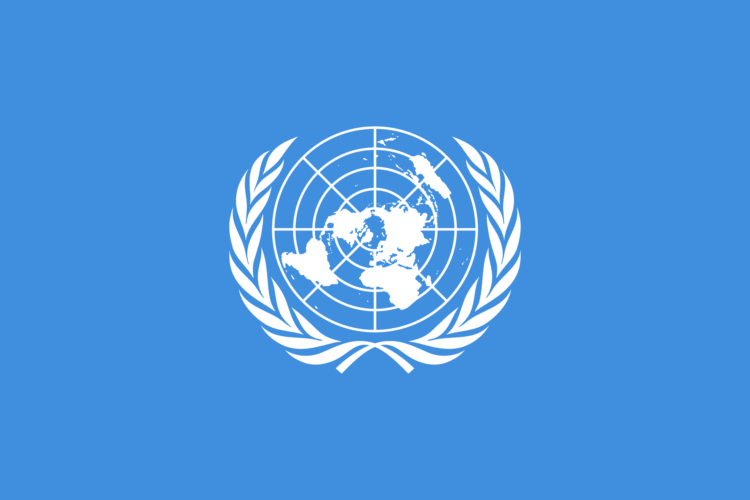United Nations Call for Social Justice in the Digital Economy

Flag of the United Nations|Source: wikipedia.org
The digital economy is transforming the world of work. Over the past decade, expansion in broadband connectivity, cloud computing, and data have led to the proliferation of digital platforms, which have penetrated several sectors of the economy and societies. Since early 2020, the consequences of the COVID-19 pandemic have led to remote working arrangements and allowed for the continuation of many business activities, further reinforcing the growth and impact of the digital economy. The crisis has also laid bare and exacerbated the growing digital divide within, between, and across developed and developing countries, particularly in terms of the availability, affordability, and use of information ICTs and access to the internet, deepening existing inequalities.
While digital labour platforms provide workers with income-generating opportunities and benefits from flexible work arrangements, including for women, persons with disabilities, young people, and migrant workers, they also present some challenges. For workers, these relate to the regularity of work and income, their rights to fair working conditions, social protection and adequate standard of living, skills utilization, and the right to form or join trade unions. Algorithmic monitoring practices, in some cases augmenting to workplace surveillance, are also a growing concern. Consequences of the COVID-19 pandemic are exposing the risks and inequalities of workers engaged in location-based platforms. For traditional businesses, the challenges include unfair competition from platforms, some of which are not subject to conventional taxation and other obligations because of their novel nature, including with respect to their workforce. Another challenge for traditional businesses is the amount of funding required to continuously adapt to digital transformations, especially for small and medium enterprises, and the inadequate availability of reliable digital infrastructure, in the global South.
Read Also: 20 February in Indian History
The regulatory responses from many countries have started to address some of the issues related to working conditions on digital labour platforms. However, there is a need for international policy dialogue and coordination since digital labour platforms operate across multiple jurisdictions. The promotion of national, regional, and international multi-stakeholder policy dialogue and coordination is also vital to ensure regulatory certainty and the applicability of universal labour standards, given the diversity of responses by countries and platform companies.
Transformations, especially for small and medium enterprises, and inadequate availability of reliable digital infrastructure, in particular in the global South. The regulatory responses from many countries have started to address some of the issues related to working conditions on digital labour platforms. However, there is a need for international policy dialogue and coordination since digital labour platforms operate across multiple jurisdictions. The promotion of national, regional, and international multi-stakeholder policy dialogue and coordination is also vital to ensure regulatory certainty and the applicability of universal labour standards, given the diversity of responses by countries and platform companies.
This year’s commemoration supports efforts by the international community to search for solutions to achieve sustainable development, poverty eradication, the promotion of full employment and decent work, universal social protection, gender equality, and access to social well-being and justice for all. Consequently, it aims at fostering dialogue with member States and relevant UN institutions and other stakeholders on actions needed to overcome the digital divide, provide decent work opportunities,, and protect labour and human rights in the modern era of digital technologies. United Nations Call for Social Justice in the Digital Economy.
On 26 November 2007, the General Assembly declared that, starting from the sixty-third session of the General Assembly, 20 February will be celebrated annually as the World Day of Social Justice.
Source: https://www.un.org/en/observances/social-justice-day
Observer Voice is the one stop site for National, International news, Sports, Editor’s Choice, Art/culture contents, Quotes and much more. We also cover historical contents. Historical contents includes World History, Indian History, and what happened today. The website also covers Entertainment across the India and World.
Follow Us on Twitter, Instagram, Facebook, & LinkedIn

